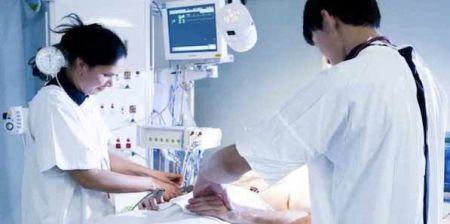Practical knowledge of experienced nurses in critical care often goes a long way towards providing effective care for patients, and understanding this knowledge can help improve the working practices of nurses with less experience, according to a study published in the 7th Space Interactive website.
"In critical patients, the application of everyday practical knowledge greatly influences their well-being," the authors explained. Their study is useful in keeping clinical practice up-to-date.
Researchers used a phenomenologic and hermeneutic approach for this qualitative study. They conducted open in-depth dialogue interviews with 13 experienced intensive care unit (ICU) nurses. Data analysis enabled "units of meaning to be categorised and grouped into seven topics" regarding everyday practical knowledge. These topics include:
After analysing the data (ie, nurses' narratives), the researchers determined the key components of caretaking that ensure success: the calm, care and affection with which they do things; the time devoted to understanding, situating and comforting patients and families; and the commitment they take on with new staff and doctors for the benefit of the patient.
The respondents' stories of experiences describe a contextual practical knowledge that these more experienced nurses develop as a natural and spontaneous response, the authors wrote.
In those cases in which the nurses describe how they have protected the patients from error, the authors noted, this practical knowledge can mean the difference between life and death.
The study highlights the need to manage practical knowledge and undertake further research.
Source: BMC Medical Education 2014, 14:173
Image credit: Pixabay.com
"In critical patients, the application of everyday practical knowledge greatly influences their well-being," the authors explained. Their study is useful in keeping clinical practice up-to-date.
Researchers used a phenomenologic and hermeneutic approach for this qualitative study. They conducted open in-depth dialogue interviews with 13 experienced intensive care unit (ICU) nurses. Data analysis enabled "units of meaning to be categorised and grouped into seven topics" regarding everyday practical knowledge. These topics include:
- Connecting with, calming and situating patients who cannot communicate;
- Situating and providing relief to patients in transitions of mechanical respiration and non-invasive ventilation;
- Providing reassurance and guaranteeing the safety of immobilised patients;
- The "connection" with patients in comas;
- Taking care of the body;
- The transition from saving life to palliative care; and
- How to protect and defend the patient from errors.
After analysing the data (ie, nurses' narratives), the researchers determined the key components of caretaking that ensure success: the calm, care and affection with which they do things; the time devoted to understanding, situating and comforting patients and families; and the commitment they take on with new staff and doctors for the benefit of the patient.
The respondents' stories of experiences describe a contextual practical knowledge that these more experienced nurses develop as a natural and spontaneous response, the authors wrote.
In those cases in which the nurses describe how they have protected the patients from error, the authors noted, this practical knowledge can mean the difference between life and death.
The study highlights the need to manage practical knowledge and undertake further research.
Source: BMC Medical Education 2014, 14:173
Image credit: Pixabay.com
Latest Articles
ICU, Critical Care, practical knowledge, caretaking
Practical knowledge of experienced nurses in critical care often goes a long way towards providing effective care for patients, and understanding this know...



























